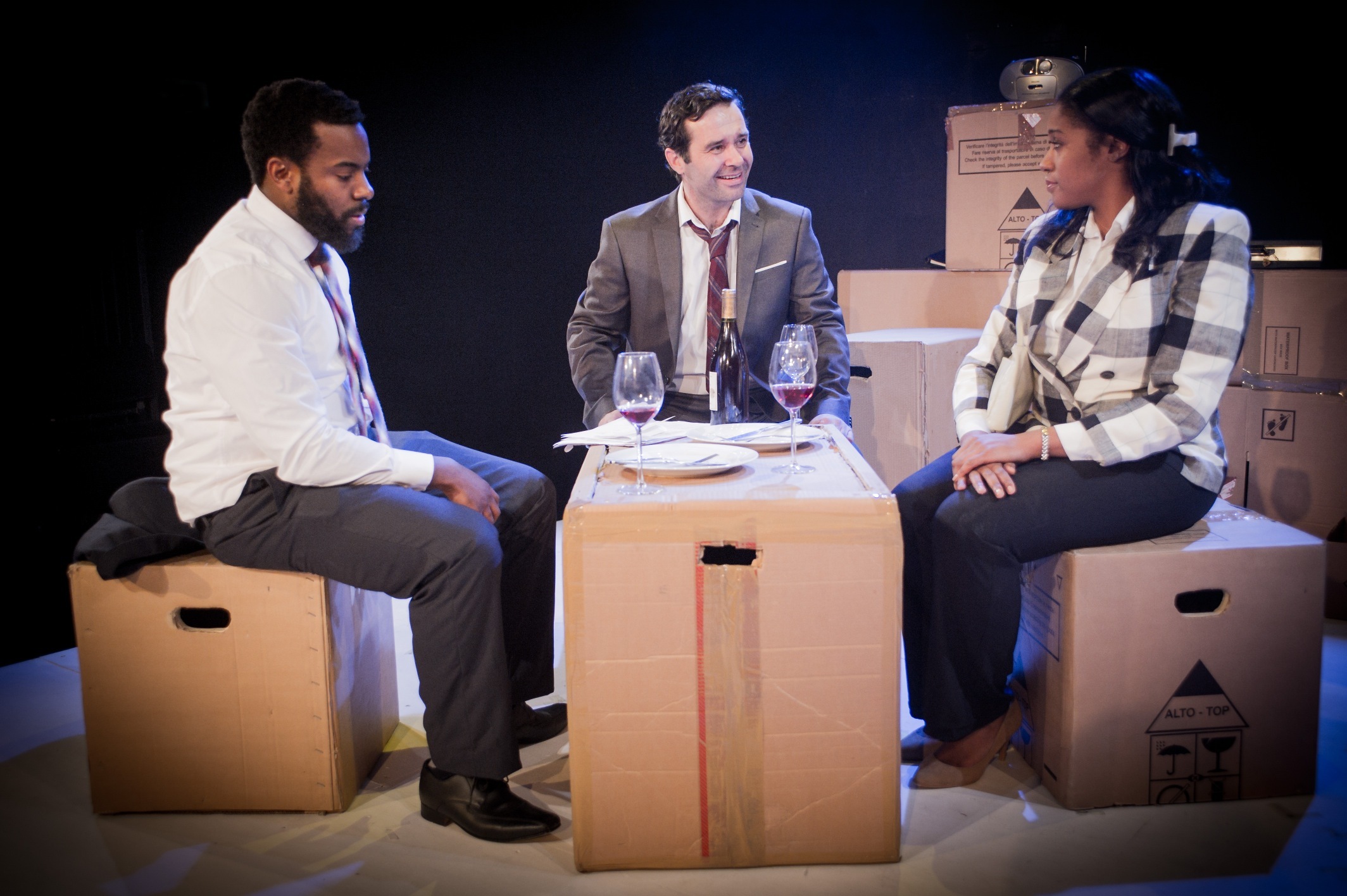Upper Cut at Southwark Playhouse, SE1
reviewed for The Times, 20 January 2015

Photo credit: Robert Workman
From her small flat, littered with cardboard boxes, political activist Karen is packing up her career and shipping out to America. It’s the land of Obama, Jesse Jackson and Martin Luther King, the place where black communities first got organised and serious about demanding direct political representation. Karen’s old sparring partner Michael, now the deputy leader of the Labour Party, is more cynical. But then Michael’s always been more cynical than Karen — or has he?
Upper Cut, former journalist Juliet Gilkes Romero’s smart new play about the black Labour movement, is an urgent and necessary work of oral memory. Few of us remember Black Sections, the radical activist group that proposed all-black shortlists for the Labour Party in the early 1980s. Preposterous, perhaps — certainly to the Labour leadership, who accused Black Sections of embarrassing the party and shut it down. Romero writes with the familiarity of someone who’s lived through these battles and Upper Cut is worth seeing for the shock of that forgotten history alone.
Yet it’s flawed by a lacklustre performance from Emma Dennis-Edwards as weary radical Karen, although there’s strong work from Akemnji Ndifornyen as rival Michael and a slick Andrew Scarborough as Barry, the white New Labour-ish spin-doctor, with whom only one can make a deal.
Directed by Lotte Wakeham — a rising star of remarkable versatility — Upper Cut narrowly steers clear of agit prop. It’s slow to start and we sit through potted histories masquerading as indignant speeches as Karen and Michael confront each other over Labour’s record. Yet the play is saved by Gilke’s reverse timeline. As we go back in time to their first meeting in 1986, more emerges to the seemingly predictable polarity of power versus principle.
Upper Cut has to imagine victories that haven’t yet been won: it’s hard to know if Michael’s compromises are worthwhile when no real-life counterpart has achieved such high office. Deceptively, the play’s debates are all about race, but its dynamics are about gender: Karen is screwed over — literally — by both men. Yet there is too much vivid history here to ignore and Upper Cut deserves a wide and diverse audience.






